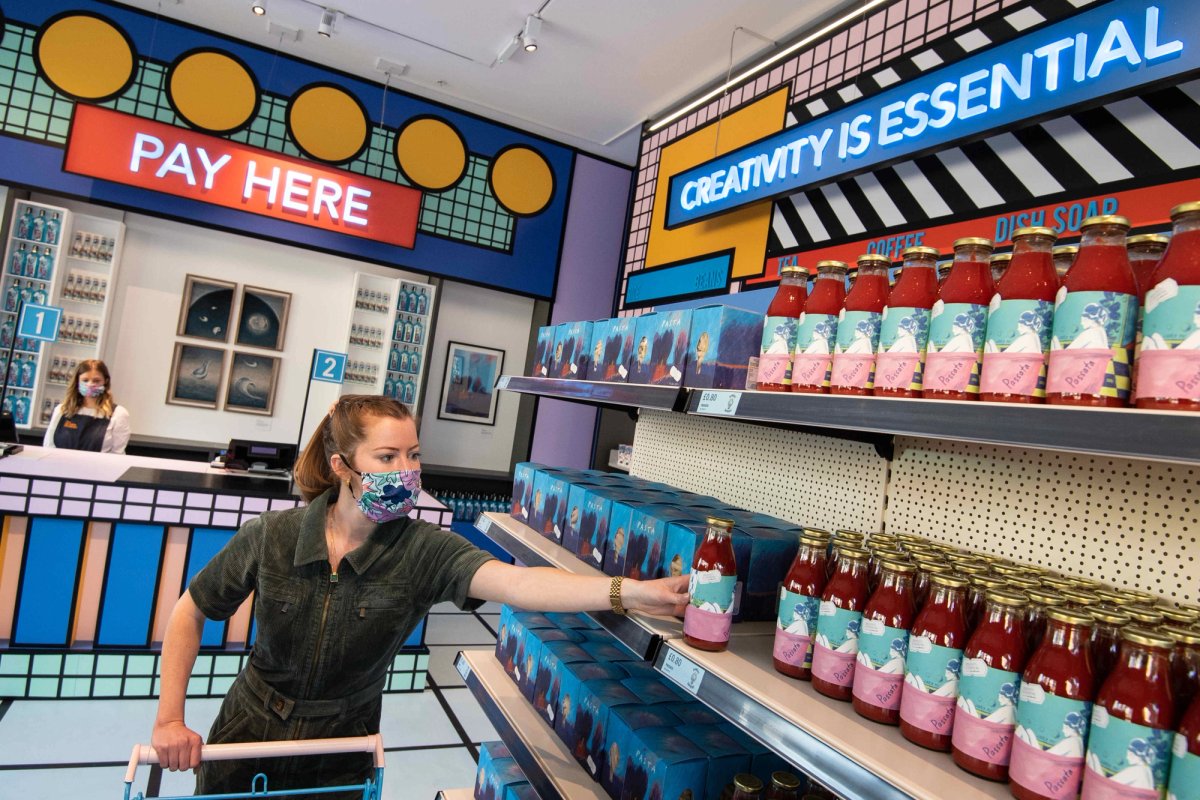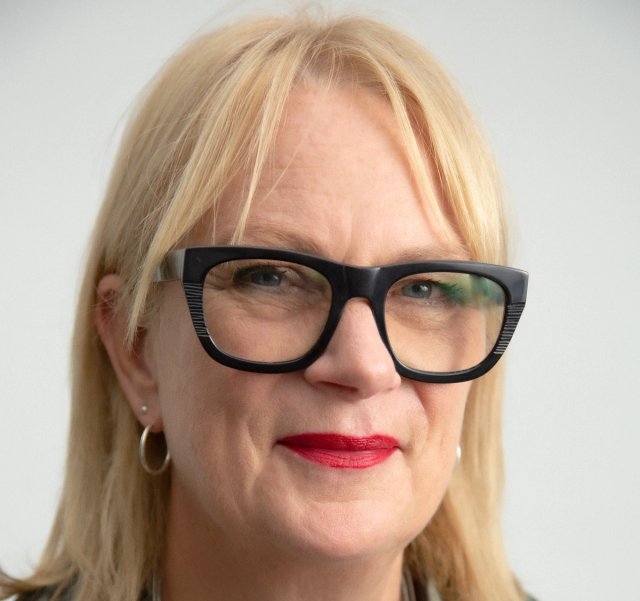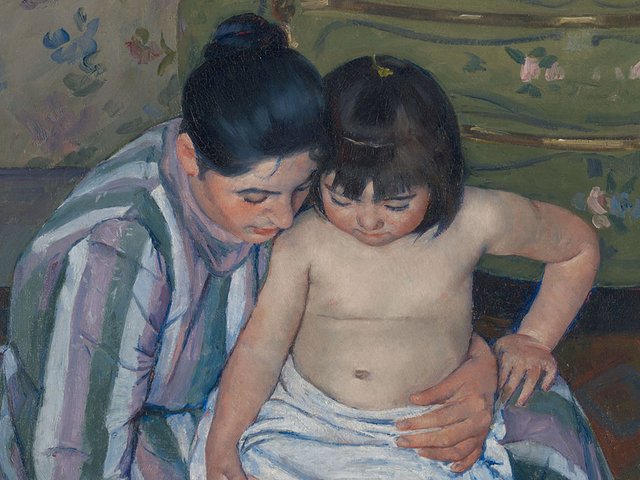There has been much howling and gnashing of teeth at the fact that the English government have allowed commercial galleries and non-essential retail to open for business, whilst public museums and galleries have to remain shut for an additional month, until 17 May. However this week the Design Museum has hatched a cunning plan to allow visitors through its doors by turning itself into a supermarket, selling essential goods for the same prices as any local store.
For five days, between 21 to 25 April, instead of its usual high end fare, the museum’s gift shop will be stocking such household staples as toilet paper, teabags, pasta, tonic water, porridge oats and tonic water. Although the prices are still strictly supermarket—£1 for washing up liquid, £3.50 for a pack of coffee, toilet paper at £1 a roll—the goods come in a limited edition of 1500 per item and all the packaging—even the stickers on the fruit—has been designed by a collective of 10 emerging artists. All proceeds from the sale of these most artistically packaged products will go to the Design Museum’s Emerging Artist’s Fund.
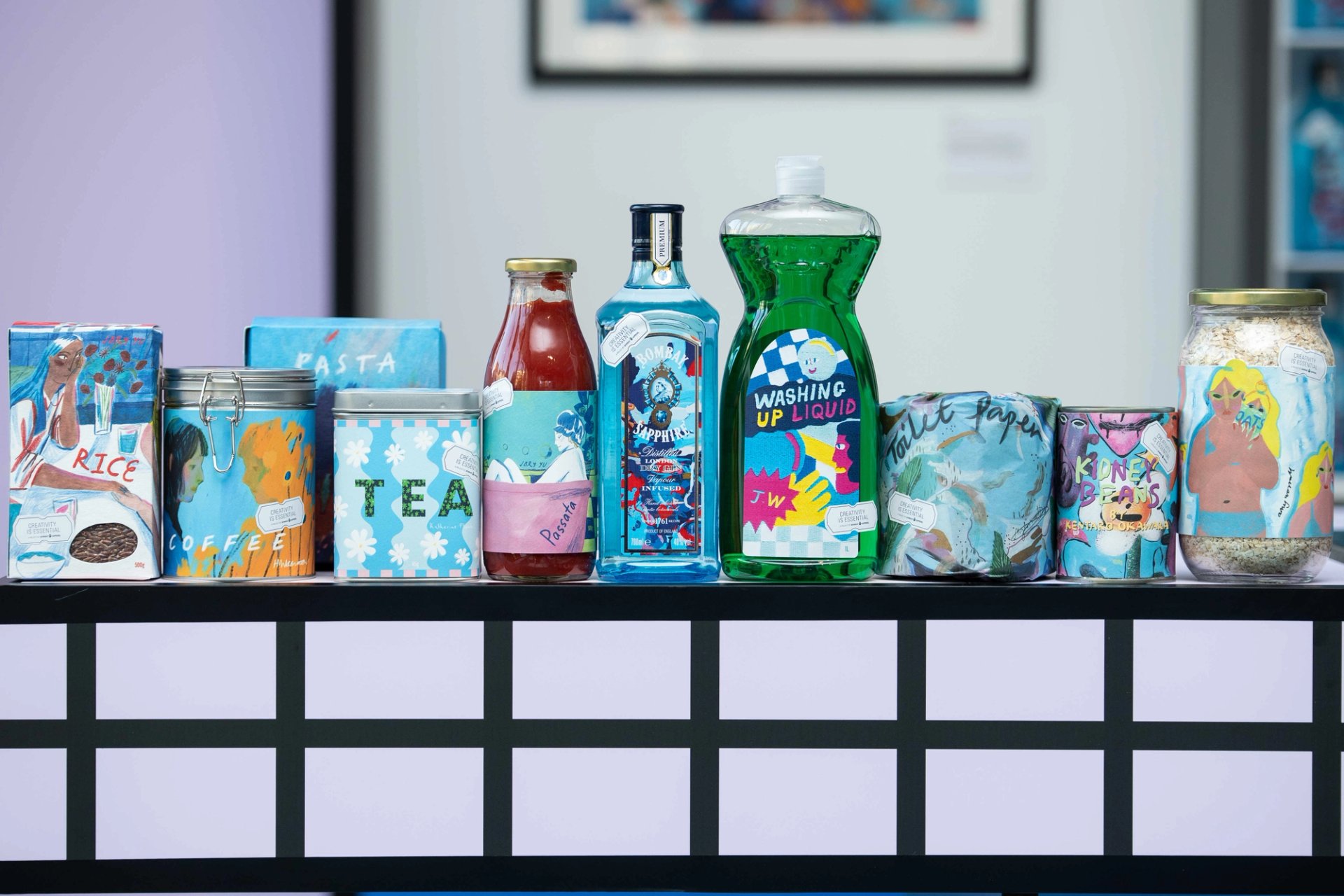
A range of products on sale at the Design Museum Courtesy of Design Museum, London
“It’s proper retail and it comes under the banner that all creativity is essential. It’s about the all-important and pervasive nature of design and creativity and how it informs all areas of our life”, says Design Museum director Tim Marlow. He also adds that, while there are many people in the museum world who are “slightly bemused” by the fact that museums have to wait an extra month to open, the supermarket project 'is not a provocation' and that it was conceived in advance of the government’s announcement of opening timings.”
“We are trying to do something that enables creative expression and a creative installation to take place safely for the public when other cultural institutions, including our own, are not allowed to open,” he explains. Nonetheless he concedes that “it’s interesting timing” that Supermarket opens “when non-essential retail is allowed to open, but when what I would describe as essential museums and institutions, aren’t".
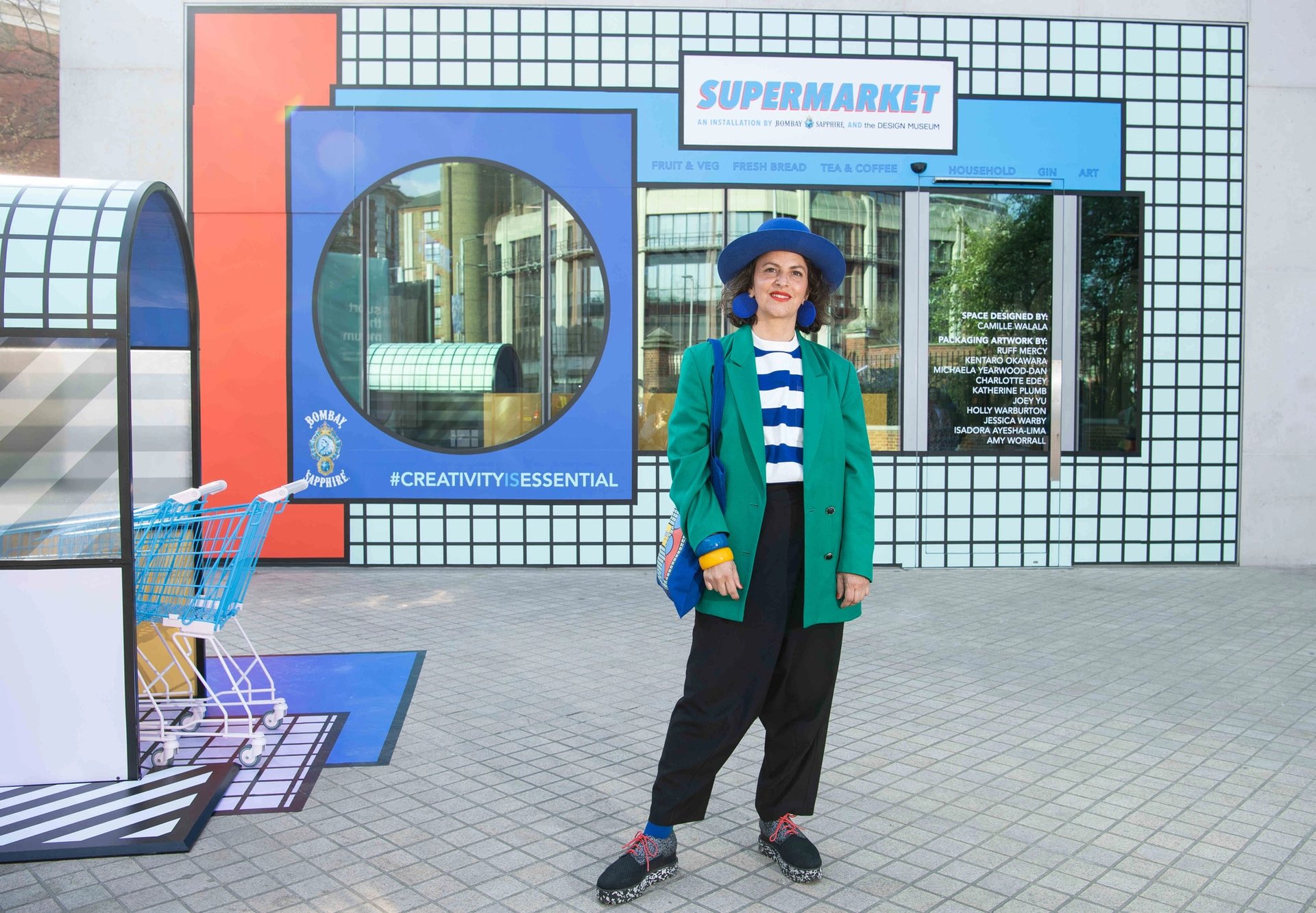
Artist Camille Walala is overseeing the project Courtesy of the Design Museum, London
While all the packaging has been designed by artists at the beginning of their careers, the Design Museum has commissioned Camille Walala to oversee the project. The French-born, London-based artist and designer, known for her vivid transformations of buildings in London’s Old Street and Leytonstone, not only co-ordinated all the product packaging design but has also transformed the interior of the shop. Marlow describes it as a “fully immersive polychromatic installation” of Walala's characteristically crisp graphic combination of blocks of brilliant colour and dramatic patterning. “The merging of an established artist-designer, who knows exactly what they're doing, as the framework for showcasing emerging talent, was really important," says Marlow, who is also keen to stress that Bombay Sapphire gin—who came up with the initial idea as well as fully funding it—“are paying each of the ten designers a proper fee to do the work”.
The five day museum supermarket also gets the vote of Neil Mendoza, the government’s Commissioner for Cultural Recovery and Renewal who, in a statement praises Bombay Sapphire for their sponsorship and urges “other brands to get behind the recovery of the UK cultural sector". It would be a good start if the government itself showed some true leadership in this direction.
• Supermarket, Design Museum, 21-25 April.


